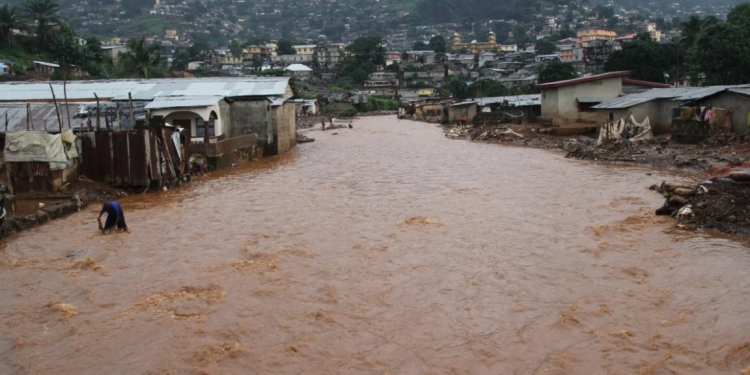By Sulaiman Aruna Sesay
Sierra Leone is a country that is highly vulnerable to natural disasters, especially during the rainy season. The country is located in a region that experiences high rainfall levels each year, and its topography has made it more prone to flooding and mudslides. Unfortunately, the outcome of living in disaster-prone areas has led to negative consequences, and both individuals and the government have had to shoulder the burden of the consequences of these disasters.
Living in disaster-prone areas in Sierra Leone has often led to the loss of lives, and the destruction of property. The rainy season is the time where the impact of flooding is at its peak, and it is not uncommon for floodwaters to wash away homes and other critical infrastructure. Mudslides often cause significant damage, and in the past, have led to several deaths. This loss of life has a resounding effect on those left behind and families must bear the emotional trauma that stems from such events.
Another significant impact of living in disaster-prone areas is the economic consequences that individuals face. The costs of relocating or rebuilding homes are always high, especially for those who are living in poverty. Natural disasters result in the loss of livelihoods and worsen poverty levels across disaster-stricken areas. When homes and properties are swept away by floods, individuals and families become displaced, and this has a drastic effect on businesses and the wider community.
The situation is direr for individuals who depend on agriculture for survival. The loss of crops has a severe impact on farmers’ incomes, and in turn, has implications on food insecurity. The consequences of disasters can be long-lasting and could take months or even years to recover fully.
Living in disaster-prone areas has wider implications on broader society, especially on the government’s resources. The government is always responsible for evacuating and resettling individuals in safer areas and rebuilding the infrastructure destroyed in the disaster. It saddles emergency services and stretches their resources beyond capacity, and this has long-lasting effects on the delivery of crucial services across the country.
The government must take significant steps to reduce the impact of natural disasters. The construction of drainage systems, the implementation of early warning systems and the creation of disaster management policies are some steps that would foster better disaster preparedness.
The ramifications of living in disaster-prone areas during the rainy season in Sierra Leone are severe, and the impact is felt across all sectors of society. The government must prioritize disaster management and invest in infrastructure development for disaster prevention; otherwise, individuals will be continually exposed to significant risks. There is a need for a collective approach towards bettering the situation, and only then can the country mitigate the impact of disasters and provide a better quality of life for its citizens.













